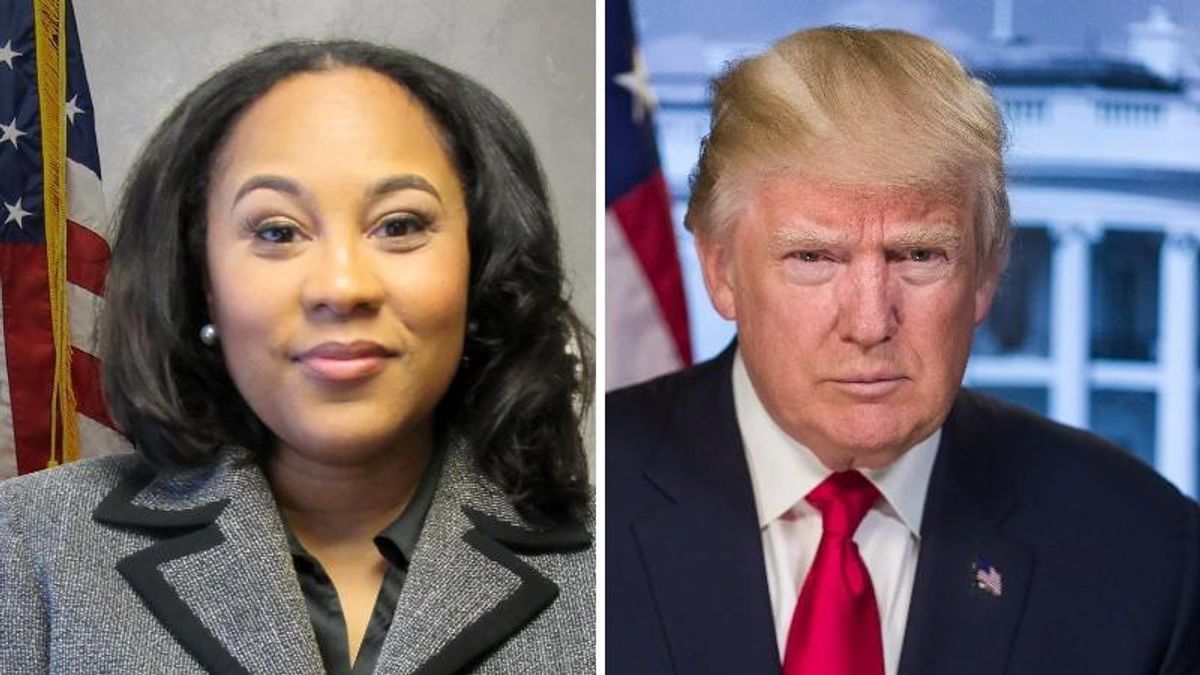
Tensions are mounting between Donald Trump’s legal team and the Georgia prosecutor it's accused of election interference for charging the former president with the same allegation.
“I think it’s ridiculous,” Fulton County District Attorney Fani Willis told CNN of the Trump lawyers’ claim. “The investigation has taken the normal course and we’re at the point that the investigation naturally took us to.”
But Steve Sadow — the defense lawyer who argued last week that an Aug. 5 court date would interfere with Trump’s 2024 presidential campaign — leapt on Willis’ own wording, according to CNN.
“What is utterly ‘ridiculous’ is Willis, the DA in Fulton County, GA, campaigning for substantial money handouts from left-wing democrats in Washington D.C. and NYC yet proclaiming her prosecution of President Trump is not political,” Trump’s Georgia attorney told CNN.
Sadow’s bias claims are linked to Willis’s fundraising, a common practice among about 2,300 prosecutors across 47 states who need money to fuel their campaigns, according to a New York Times report from 2017.
ALSO READ: Why Donald Trump should absolutely fear the 14th Amendment
This spat echoes the debate held in a pretrial hearing last week when Sadow fought to push back Trump’s trial until after the election, or until 2029 if he reclaimed the White House.
Willis was quick to point out her office was empowered to request a court date only, not to set one.
“The judge will set the date,” Willis said. “We tried to be respectful in our request of other jurisdictions where one of the defendants in the case had to be present.”
Willis’ requested court date would be about a year after she charged Trump and 18 co-defendants with racketeering to overturn the 2020 presidential election.
Complicating Trump’s schedule are three other criminal cases — linked to the Jan. 6 riots, boxes of White House documents found in a Mar-a-Lago and accusations that he paid hush money to a porn star — as well as a civil court trial slated to bleed into January 2024.
Trump has pleaded not guilty in the criminal cases and denied wrongdoing in the civil.




